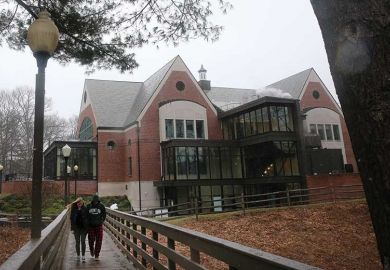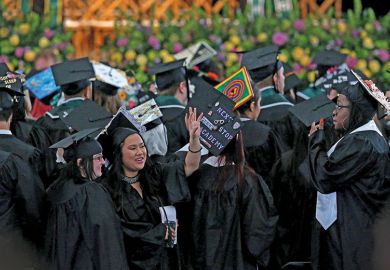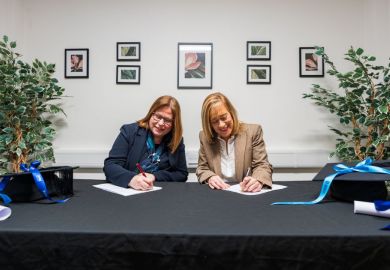Harvard University president Larry Bacow has rejected widespread fears about growing numbers of closures across US higher education, insisting that most struggling institutions will find ways to survive.
“The death of American higher education as we know it has been grossly over-predicted, and consistently so,” Dr Bacow told a conference in Washington.
The rate of US college closures has been increasing recently: it is now running at 11 a year among private institutions, and growing, Moody’s Investors Service reported last year.
Dr Bacow has had an especially close view, with recent closures in Massachusetts including Wheelock College, Newbury College and Mount Ida College. Hampshire College, in the west of the state, has just announced that it will not admit a full intake of freshman this autumn because of budget troubles.
Clayton Christensen, a professor at Harvard Business School, has gained attention for his predictions – now several years running – that as many as half of US universities will fail within 10 to 15 years.
But Dr Bacow pushed back against such talk at the conference on the future of higher education, which was hosted by the American Enterprise Institute and the Brookings Institution. “Colleges and universities are far more adaptable and durable than some may give them credit for being,” he said.
He cited revival stories such as Antioch College and Sweet Briar College; the apparent success of Bennett College in raising well beyond the $5 million (£3.9 million) that it needed by this month to survive; and the vibrant rebirth in recent decades of Harvard’s neighbour Northeastern University.
Dr Bacow and others at the conference were less clear, however, on how exactly the success stories would outpace the closures, given the demographic realities of declining US birth rates, growing economic divides, high student debt rates, political hostilities towards immigration and rising foreign competition.
A host of the gathering, Richard Reeves of the Brookings Institution, prodded Dr Bacow on whether the nation’s better-off institutions could do more to help the wider academy and its students amid their mounting troubles. Dr Reeves, a senior fellow in economic studies at Brookings, cited the influence that Harvard holds by virtue of, among other things, its wealth, reputation and high number of graduates in prestigious and powerful positions.
Another expert on higher education finance, Sandy Baum of the Urban Institute, made a similar plea for big-picture assistance. “Educate students who are going to go out and make a difference in the world – who don’t have the goal of just maximising their own incomes, but of making the world a better place,” Dr Baum, a former professor of economics at Skidmore College, told Dr Bacow.
In response, Dr Bacow cited actions that include Harvard’s policy of meeting the full financial needs of any undergraduate it admits. “We are blessed with the resources to do this,” said Dr Bacow, whose institution’s $40 billion (£31 billion) endowment is the world’s largest.
Professor Christensen has based his estimates of widespread US university closures largely on an expectation that student demand for lower-cost education will lead to new online models that leave traditional campuses behind.
Yet after challenging his professor’s predictions on institutional closures, Dr Bacow said that Harvard’s own efforts to help provide US students with affordable higher education options included its creation, along with the Massachusetts Institute of Technology, of the open online course provider edX.
An MIT study just last month, however, concluded that edX and similar ventures were largely failing to reach low-income students and instead are trying to attract paying customers seeking professional credentials.
Register to continue
Why register?
- Registration is free and only takes a moment
- Once registered, you can read 3 articles a month
- Sign up for our newsletter
Subscribe
Or subscribe for unlimited access to:
- Unlimited access to news, views, insights & reviews
- Digital editions
- Digital access to THE’s university and college rankings analysis
Already registered or a current subscriber?








